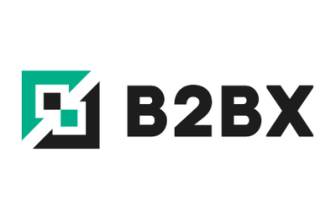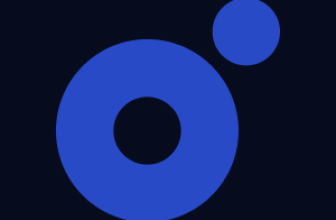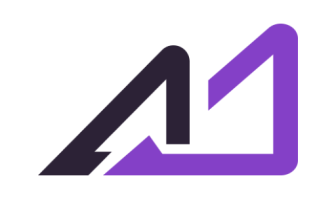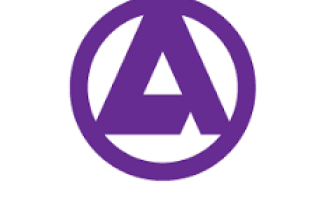
In the realm of decentralized finance (DeFi), where traditional banking and insurance products are being revolutionized, Akropolis (AKRO) emerges as a prominent player. Like a master weaver, it intertwines innovation and efficiency to create a distributed savings and pension fund, challenging the norms of the financial landscape. At its core lies the AkropolisOS framework, empowering the development of smart contract-based DeFi products. With a unique feature of under-collateralized loans, Akropolis allows users to access financial opportunities that were once out of reach.
Moreover, the integration with the Polkadot ecosystem has expanded its horizons, while the merger with Yearn Finance has opened doors to institutional traders, driving platform and pool development. Despite a setback in 2020 with a hack, Akropolis remains committed to compensating its users and improving their experience. The AKRO token serves as a tool for governance and revenue-sharing, while the project continues to focus on enhancing yield-generation products. In this review, we explore the multifaceted world of Akropolis as a DeFi lending aggregator.
Key Takeaways
- Akropolis aims to replace traditional banking and insurance products with decentralized versions.
- Akropolis allows for the creation of under-collateralized loans, a unique feature in DeFi.
- Akropolis has merged with Yearn Finance and became the exclusive provider for Yearn Vaults lending solutions.
- Akropolis suffered a hack in November 2020 but has pledged to compensate users for their losses.
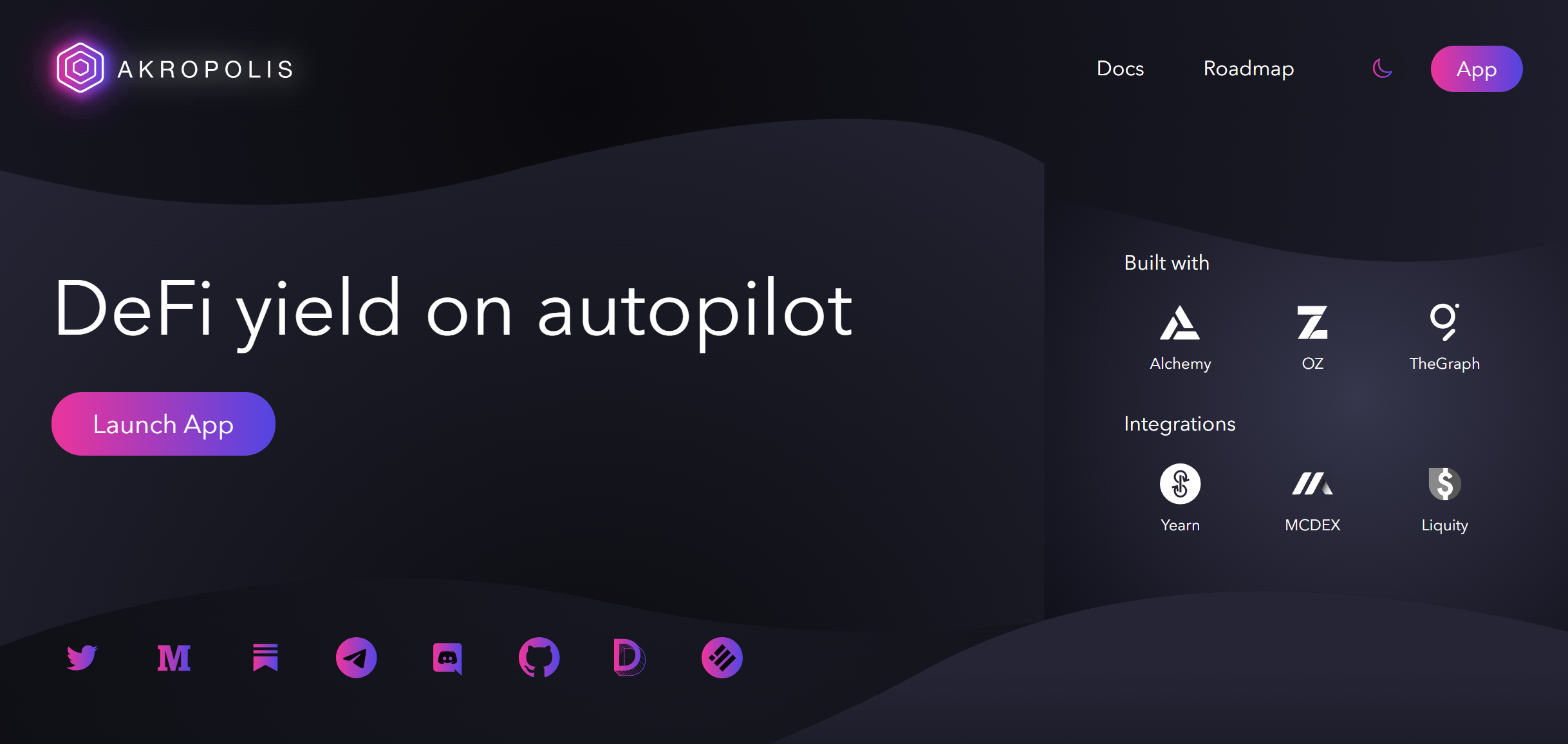
What is Akropolis?
Akropolis is a decentralized finance platform that aims to replace traditional banking and insurance products with decentralized versions. It offers various financial services such as investing, lending, saving, and earning from staked cryptocurrencies. The platform, built on the AkropolisOS framework, enables the creation of smart contract driven decentralized finance products. Akropolis allows for the creation of under-collateralized loans, a unique feature in the DeFi space.
Its capital pools can be configured for various financial purposes such as lending, savings, insurance, pension funds, and group investing. The Akropolis team, led by CEO Ana Andrianova and Operations Head Kate Kurbanova, consists of tech talent with expertise in blockchain and finance. They are dedicated to developing innovative solutions and improving the user experience. The team’s collaboration with Yearn Finance aims to bring institutional traders into the DeFi space and create new platforms and pools.
DeFi Savings and Pension Fund
The creation of a distributed savings and pension fund in the decentralized finance space presents an innovative solution for individuals seeking alternative investment options. This approach brings numerous benefits to the savings and pension industry, including increased accessibility, transparency, and efficiency.
1) Accessibility: Decentralized finance allows anyone with an internet connection to participate in savings and pension funds, regardless of their location or socioeconomic status.
2) Transparency: Smart contracts on the blockchain provide transparent and auditable records of all transactions, ensuring that participants have visibility into the fund’s operations.
3) Efficiency: By eliminating intermediaries and automating processes through smart contracts, decentralized finance reduces costs and increases the efficiency of savings and pension funds.
However, undercollateralized loans in DeFi also pose challenges and potential risks. These loans rely on a trust-based system where borrowers stake 50% collateral and rely on other members of the decentralized autonomous organization (DAO) to stake the remaining 50%. This introduces the risk of default and loss of funds if borrowers or DAO members fail to fulfill their obligations. Additionally, the lack of regulatory oversight in DeFi can lead to potential fraud and scams.
AkropolisOS Framework
The AkropolisOS framework revolutionizes the decentralized finance space by enabling the creation of smart contract driven products that offer a multitude of financial opportunities such as investing, lending, saving, and earning from staked cryptocurrencies, thus empowering individuals to take control of their financial future and participate in the growing DeFi ecosystem. AkropolisOS has the potential to explore decentralized governance and decision making, allowing users to have a say in the development and direction of the platform.
The recent merger with Yearn Finance has significant implications for the future growth and development of Akropolis. This collaboration brings together the expertise and resources of both teams, aiming to create new platforms and pools and attract institutional traders into the DeFi space. The merger also includes the open-sourcing of AkropolisOS, providing access to products from Pickle Finance and Cream, and leveraging Akropolis’ expertise for new strategies and business development. Overall, the future of Akropolis looks promising as it continues to innovate and expand its offerings in the DeFi landscape.
Akropolis: Smart Contract Driven Finance
Revolutionizing the landscape of decentralized finance, smart contract driven finance brings forth a new era of financial opportunities and empowerment. By utilizing smart contracts, decentralized finance platforms like Akropolis enable the creation of innovative lending solutions that offer numerous benefits.
| Benefits of Decentralized Finance |
|---|
| Increased Accessibility: Smart contract driven finance eliminates the need for intermediaries, allowing anyone with an internet connection to access financial services. |
| Transparency and Security: Smart contracts are executed on a blockchain, ensuring transparency and immutability of transactions. This enhances security and reduces the risk of fraud. |
| Lower Costs: Without the need for traditional banking infrastructure, decentralized finance platforms can offer lower fees and interest rates, making financial services more affordable. |
| Global Reach: Smart contract driven finance is not limited by geographical boundaries, enabling individuals from anywhere in the world to participate in the global financial ecosystem. |
These benefits make smart contract driven finance an attractive option for individuals seeking more inclusive and efficient financial solutions.
Under-Collateralized Loans
Under-collateralized loans have emerged as a unique feature in the decentralized finance landscape, offering borrowers the ability to access funds without fully securing them with collateral. This innovative approach has several advantages:
- Increased accessibility: Under-collateralized loans allow borrowers with limited or no collateral to access funds, expanding financial opportunities for individuals who may not meet traditional lending requirements.
- Diversification of risk: By involving multiple stakeholders who contribute collateral, under-collateralized loans spread the risk among participants, reducing the potential impact of default.
- Improved liquidity: Under-collateralized loans provide borrowers with immediate access to funds, without the need to lock up a significant amount of collateral.
However, implementing under-collateralized loans also poses challenges. These include:
- Trust and reputation: Participants in under-collateralized loans must trust each other to fulfill their obligations, as the risk of default is higher compared to fully collateralized loans.
- Complexity of governance: Determining the terms and conditions for under-collateralized loans and managing the involvement of multiple stakeholders can be complex, requiring robust governance mechanisms.
- Regulatory compliance: Under-collateralized loans may face regulatory scrutiny due to the increased risk involved, requiring adherence to relevant financial regulations.
Overall, under-collateralized loans offer unique advantages but also pose challenges that need to be addressed for their successful implementation in the decentralized finance ecosystem.
Akropolis Exchange: Capital Pools Configuration
In the previous subtopic, we discussed under-collateralized loans, a unique feature offered by Akropolis in the decentralized finance (DeFi) space. Now, let’s shift our focus to the configuration of capital pools within the Akropolis ecosystem.
Capital pools in Akropolis can be configured for various financial purposes, including lending, savings, insurance, pension funds, and group investing. This flexibility allows users to tailor their investment strategies according to their specific needs and risk appetite. One of the advantages of under-collateralized loans in DeFi is that they enable borrowers to access funds without having to fully collateralize their loans. This feature provides greater financial inclusivity and expands the lending opportunities for individuals who may not have sufficient collateral.
Furthermore, the recent merger between Akropolis and Yearn Finance has had a significant impact on the DeFi ecosystem. This collaboration aims to bring institutional traders into the DeFi space, create new platforms and pools, and leverage Akropolis’ expertise for developing new strategies and business opportunities. The integration of AkropolisOS and access to products from Pickle Finance and Cream further enhance the capabilities of the combined ecosystem. Overall, the Akropolis and Yearn Finance merger contributes to the growth and maturation of the DeFi industry by fostering innovation and collaboration.
Replacing Traditional Banking
Replacing traditional banking and insurance products with decentralized versions is a key objective of the Akropolis project. By leveraging blockchain technology and the AkropolisOS framework, Akropolis aims to provide decentralized banking solutions that empower individuals and promote financial inclusion. With its modular framework, Akropolis enables the creation of smart contract-driven decentralized finance products, including platforms for investing, lending, saving, and earning from staked cryptocurrencies.
By eliminating the need for intermediaries, Akropolis seeks to democratize access to financial services and reduce costs for users. Through the creation of capital pools, Akropolis allows individuals to participate in various financial activities such as lending, savings, insurance, pension funds, and group investing. By offering under-collateralized loans and other innovative features, Akropolis is at the forefront of revolutionizing the traditional banking industry and providing accessible financial solutions to individuals worldwide.
Akropolis: Integration with Polkadot Ecosystem
The integration of Akropolis with the Polkadot ecosystem expands its reach and potential by leveraging the capabilities of the Substrate framework. By building on Substrate, Akropolis gains access to the Polkadot network’s interoperability and scalability features. This integration brings several benefits to Akropolis, including increased security, enhanced cross-chain communication, and the ability to tap into the growing Polkadot ecosystem. Additionally, the recent merger with Yearn Finance further amplifies the impact of this integration.
The collaboration with Yearn Finance allows for the creation of new platforms and pools, attracting institutional traders to the DeFi space. Furthermore, by open-sourcing AkropolisOS and leveraging the expertise of both teams, the collaboration aims to develop new strategies and improve the user interface and experience. Overall, the integration with the Polkadot ecosystem and the merger with Yearn Finance position Akropolis for further growth and innovation in the decentralized finance landscape.
Cashflow Relay Project
The previous subtopic discussed Akropolis’s pension dApp called Pensify, which offers yield farming and flash loan arbitrage. Now, let’s shift our focus to another noteworthy project by Akropolis, the Cashflow Relay Project. This initiative aims to capture the value of future cashflows and allows for tokenization and trading. Tokenization benefits include increased liquidity, fractional ownership, and the ability to trade these tokens on decentralized exchanges. By tokenizing cashflows, individuals and businesses can unlock the value of their future earnings and trade them as digital assets. This innovative approach has the potential to revolutionize the financial landscape by providing new avenues for investment and fundraising. It represents a glimpse into the future of decentralized finance, where traditional financial instruments are transformed into digital tokens, empowering individuals and fostering financial inclusivity.
- Sub-list: Evoking Curiosity
- How can tokenization revolutionize the way we invest?
- What are the implications of tokenizing future cashflows?
- Sub-list: Inspiring Hope
- Tokenization opens up new investment opportunities for individuals who were previously excluded from traditional financial markets.
- The future of decentralized finance holds the promise of greater financial inclusivity and empowerment for all.
Frequently Asked Questions
How does Akropolis plan to compensate users for the losses incurred in the November 2020 hack?
Akropolis has implemented a compensation plan to address the losses incurred in the November 2020 hack. The plan involves compensating users by donating 50% of the hacked tokens in vested AKRO tokens and providing the remaining 50% from future product fees. This compensation strategy demonstrates the project’s commitment to resolving the issue and mitigating the impact on users. Additionally, Akropolis has taken security measures to prevent future hacks and safeguard user funds, prioritizing the protection of assets within their decentralized finance platform.
What is the recent collaboration between Akropolis and Yearn Finance focused on?
The recent collaboration between Akropolis and Yearn Finance is focused on the development of DeFi lending aggregator platforms. This partnership aims to bring institutional traders into the DeFi space and create new platforms and pools. As part of the collaboration, Akropolis has become the exclusive provider for Yearn Vaults lending solutions. This collaboration also includes open-sourcing AkropolisOS, gaining access to products from Pickle Finance and Cream, and leveraging Akropolis’ expertise for new strategies and business development.
What is the long-term plan of Akropolis and how does it aim to improve the user interface and experience?
Akropolis has outlined its long-term vision, which includes enhancing the user interface and experience. The project aims to adopt Yearn v2 vaults and develop new yield-generating products. Additionally, Akropolis plans to become the exclusive institutional front-end for the combined Yearn-Akropolis suite. These initiatives are intended to attract institutional traders to the DeFi space and create new platforms and pools. By improving the user interface and experience, Akropolis seeks to provide a more user-friendly and accessible environment for individuals to engage with decentralized finance.
What is the swap rate and duration for merging the ADEL token with the primary AKRO token?
The swap rate for merging the ADEL token with the primary AKRO token is 1 ADEL = 15 AKRO. The merging duration is from March 1 to May 1, with a vesting term of 24 months. This swap offer allows ADEL token holders to voluntarily exchange their tokens for AKRO tokens at the specified rate. The purpose of this merger is to consolidate the tokens and streamline the governance and utility of the AKRO token within the Akropolis ecosystem.
How does AKRO token accrue a Total Value Locked (TVL) referral fee and what is its role in the protocol governance?
The AKRO token accrues a Total Value Locked (TVL) referral fee by earning revenue from funds entering yEarn vaults through Akropolis interfaces. This fee is a mechanism to incentivize users to participate in the protocol and contribute to its growth. In terms of protocol governance, the AKRO token acts as a governance token, allowing token holders to have a say in the decision-making process of the protocol. They can participate in voting on protocol parameters and propose changes or improvements to the system.



